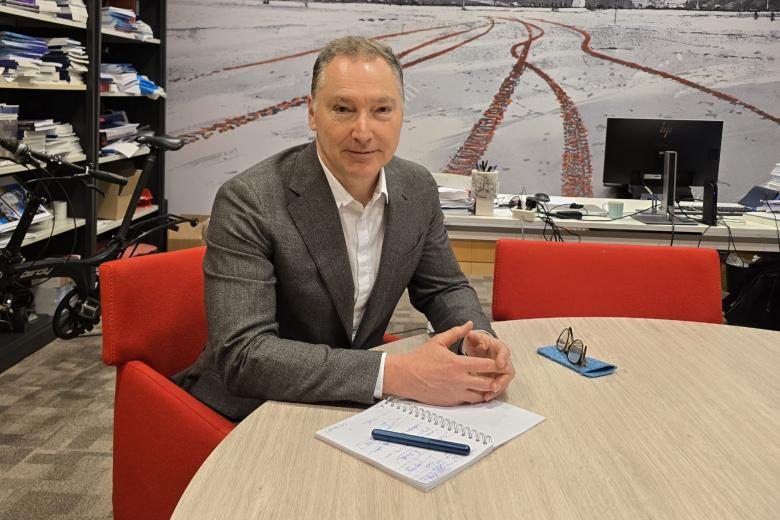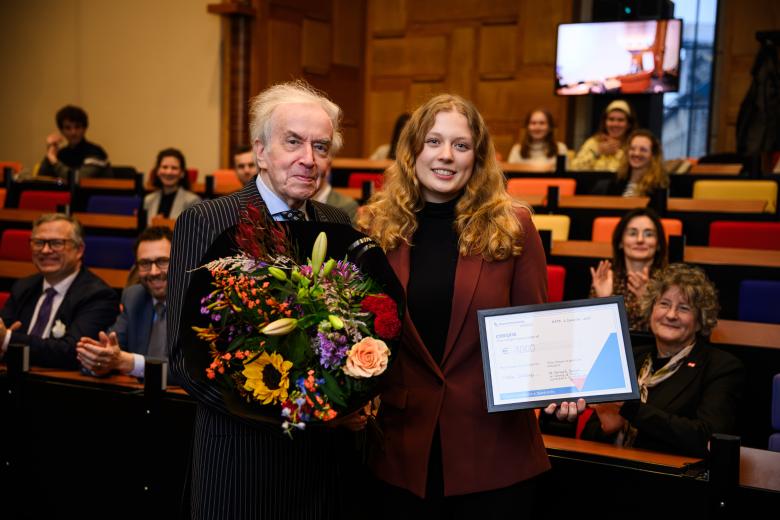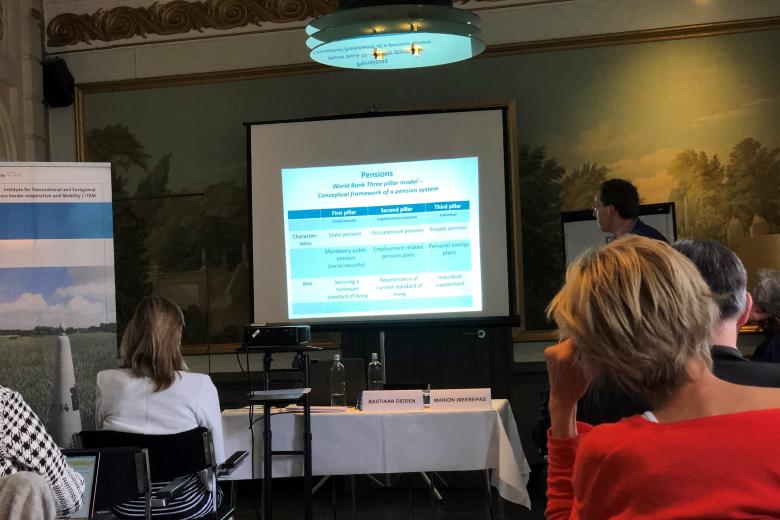MoveS seminar in retrospective
On 23 September 2019, the MoveS seminar Netherlands took place in Maastricht. The theme of this seminar was "Freedom of movement in the Euregion Meuse-Rhine" and was jointly organised by MoveS, Prof. Anne Pieter van der Mei and Expertise Centre ITEM.
MoveS stands for "Free Movement of Workers and Social Security Coordination" and is a network of independent, international experts in the field of intra-EU mobility, funded by the European Commission. One of their tasks is to disseminate information by, amongst others, organizing seminars, such as this one.
In-depth legal information on social security and free movement of workers
During this seminar multiple experts elaborated on a wide spread of topics within social security and free movement of workers. First of all, on behalf of the European Commission, Francisco Pérez Flores (DG EMPL - Unit D1, Free movement of workers) and Els Vertongen (DG EMPL - Unit D2, social security coordination) presented some recent developments. These went from EURES and the European Labour Authority to the amendments of EU law and Brexit.
From science and practice, prof. Wollenschläger (Universität Augsburg), Suzanne Jongste (PhD Maastricht University), dr. Saskia Montebovi (Maastricht University/ITEM, Tilburg University) and Henk van der Most (SVB) elaborated on specific topics in fields of the Regulation on coordination of social security and the European free movement of workers.
ITEM sheds a light on different qualification problems
From ITEM, Prof. Marjon Weerepas, Bastiaan Didden and Lavinia Kortese each explained a different area of differences in qualifications: social security and taxation, social security and pensions, and finally, diploma recognition across the border. These presentations showed how discoordination and differences in qualification by national competences can impede the free movement of workers.
The presentation of Bastiaan Didden (PhD ITEM, Maastricht University) was a sneak preview and small dissemination of his PhD-research that has been recently completed. He will defend his PhD “Qualification problems: between social security and supplementary pension” on 8 November 2019 at 14:00. During the seminar Didden showed the distinction between the different pension pillars based on their characteristics and showed how this theoretical distinction can fade away and be mixed up at European or cross-border level. The distinction between social security (state pension) and pension (supplementary, private pension) may therefore become blurred in cross-border cases and it may become unclear which European legislation applies to a particular old-age pension scheme.
His research is aimed at reaching common criteria that from a European perspective can be applied in cross-border pension situations, resulting in an equal tax treatment guaranteeing the free movement of workers. Didden will present his findings at the defense on 8 November 2019, which is open for everybody to attend.
The complete report of the seminar can be found on the event-page.
Also read
-
Ronald Janse appointed as new dean of Maastricht University Faculty of Law
The Executive Board of Maastricht University is delighted to announce the appointment of Prof. Ronald Janse as dean of the Faculty of Law.
-
Virtual companions, real responsibility: call for clear regulations on AI tools used for mental health interactions
Mindy Nunez Duffourc (Assistant Professor of Private Law and member of the Law and Tech Lab) co-authored an article outlining the urgent need for clear regulations for AI characters.
-
Maastricht Consulates Prize on EU Law 2025 Awarded
On 2 December, the Maastricht Consulates Prize on EU Law 2025 was awarded at the Faculty of Law of Maastricht University to Merle Sandhop.

